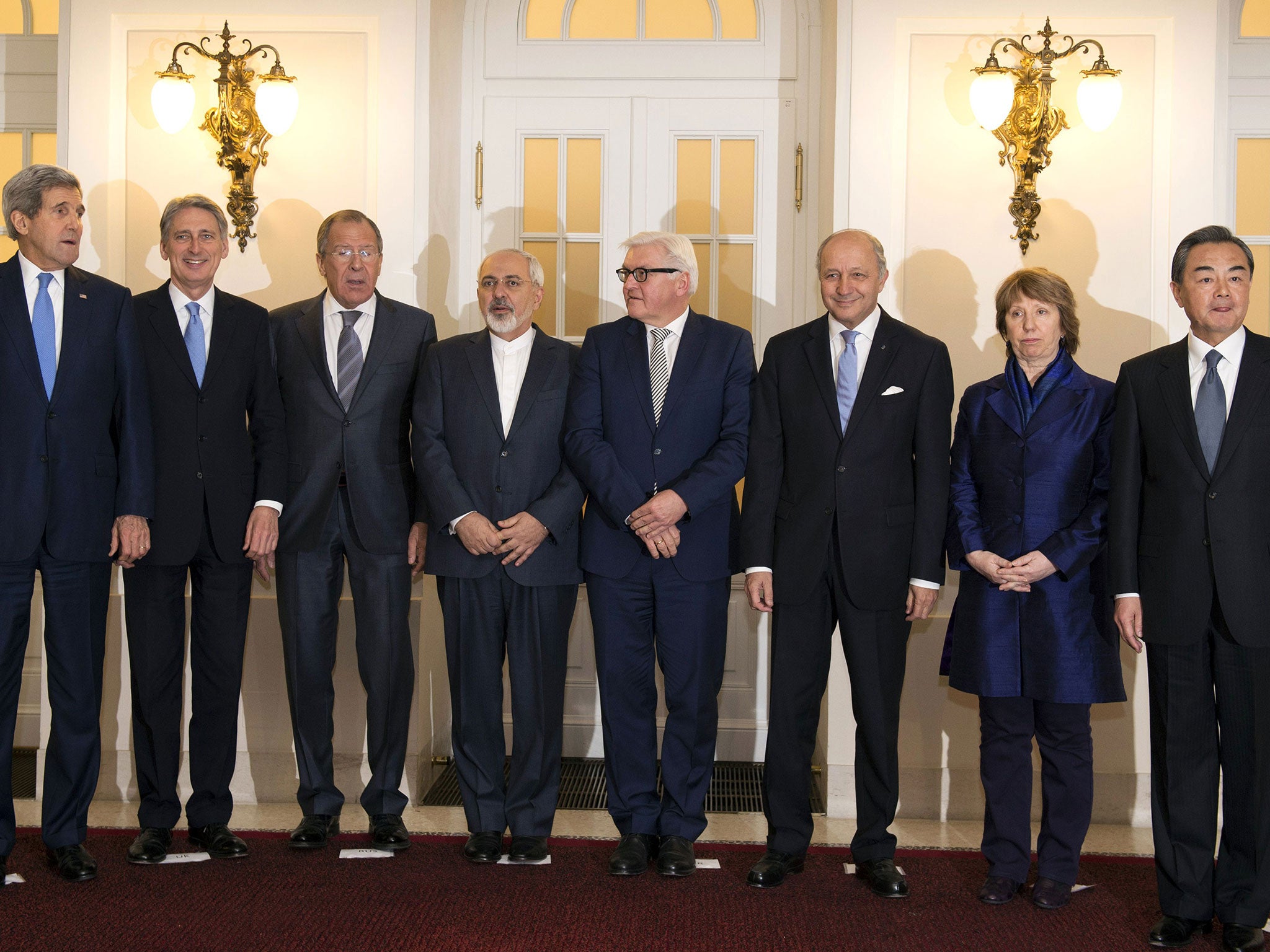Iran nuclear talks extended after deadline passes without deal

Your support helps us to tell the story
From reproductive rights to climate change to Big Tech, The Independent is on the ground when the story is developing. Whether it's investigating the financials of Elon Musk's pro-Trump PAC or producing our latest documentary, 'The A Word', which shines a light on the American women fighting for reproductive rights, we know how important it is to parse out the facts from the messaging.
At such a critical moment in US history, we need reporters on the ground. Your donation allows us to keep sending journalists to speak to both sides of the story.
The Independent is trusted by Americans across the entire political spectrum. And unlike many other quality news outlets, we choose not to lock Americans out of our reporting and analysis with paywalls. We believe quality journalism should be available to everyone, paid for by those who can afford it.
Your support makes all the difference.Iran and six powers failed for a second time this year on Monday to resolve their 12-year dispute over Tehran's nuclear ambitions and gave themselves seven more months to overcome the deadlock that has prevented them from clinching a historic deal.
Western officials said they were aiming to secure an agreement on the substance of a final accord by March but that more time would be needed to reach a consensus on the all-important technical details.
“We have had to conclude it is not possible to get to an agreement by the deadline that was set for today and therefore we will extend the JPOA to June 30, 2015,” British Foreign Secretary Philip Hammond told reporters at the end of the talks.
He was referring to the so-called Joint Plan of Action, an interim deal agreed between the six and Iran a year ago in Geneva, under which Tehran halted higher level uranium enrichment in exchange for a limited easing of sanctions, including access to some frozen oil revenues abroad.
Hammond said the expectation was that Iran would continue to refrain from sensitive atomic activity.
He added that Iran and the powers “made some significant progress” in the latest round of talks, which began last Tuesday in the Austrian capital. Hammond said that there was a clear target to reach a “headline agreement” of substance within the next three months and talks would resume next month.
It is unclear where next month's talks will take place, he said, noting that during the extension period, Tehran will be able to continue to access around $700 million per month in sanctions relief.
An Iranian official confirmed the extension, as did Russian Foreign Minister Sergei Lavrov, who echoed Hammond's comments about “substantial progress”.
The deadline for a deal, agreed in July when the two sides missed an earlier target date, was Monday.
The Vienna talks aimed for a deal that could transform the Middle East, open the door to ending economic sanctions on Iran and start to bring a nation of 76 million people in from the cold after decades of hostility with the West.
The cost of failure could be high, and Iran's regional foes Israel and Saudi Arabia are watching nervously. Both fear a weak deal that fails to curtail Tehran's nuclear ambitions, while a collapse of the negotiations would encourage Iran to become a threshold nuclear weapon state, something Israel has said it would never allow.
Reuters
Join our commenting forum
Join thought-provoking conversations, follow other Independent readers and see their replies
11Comments